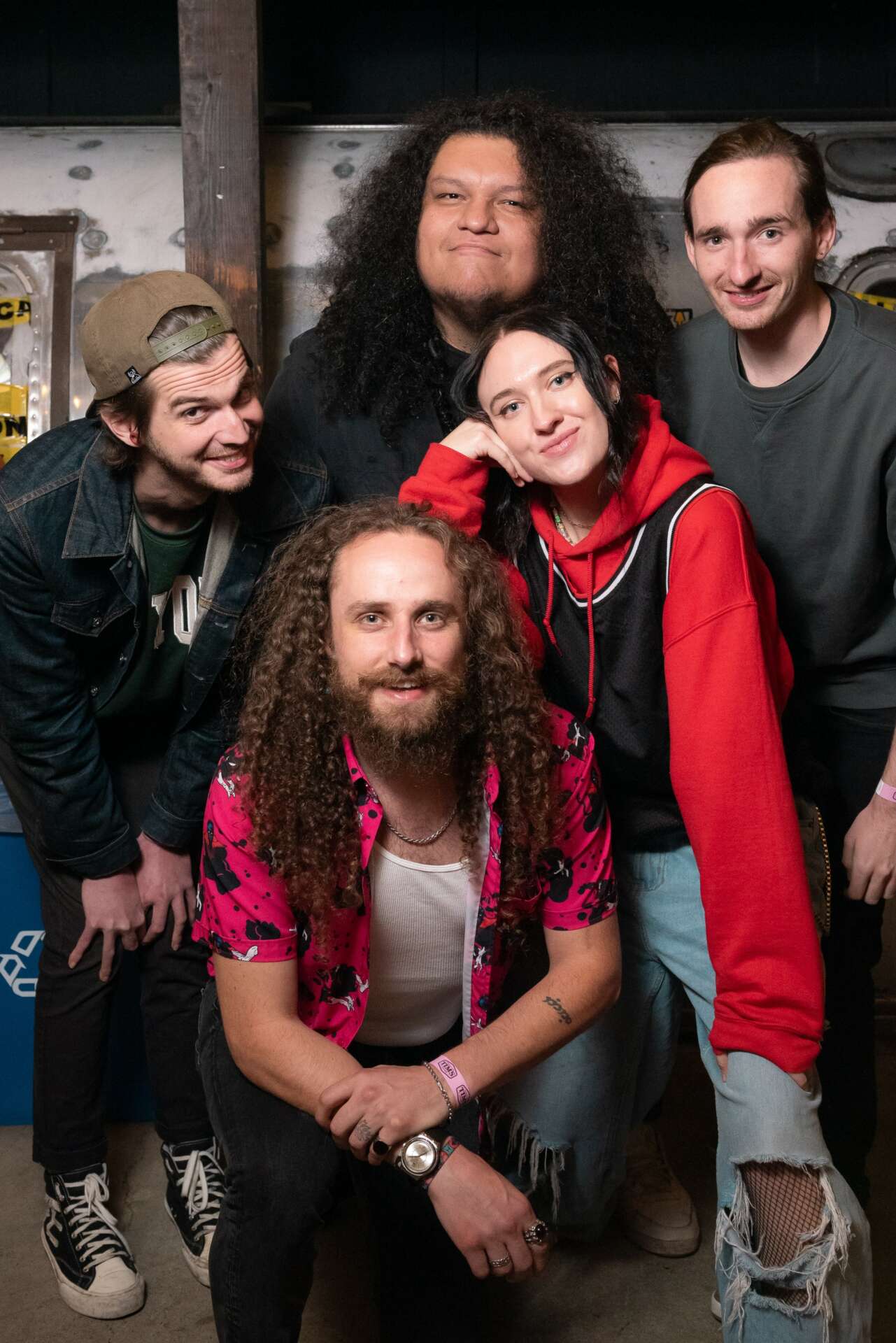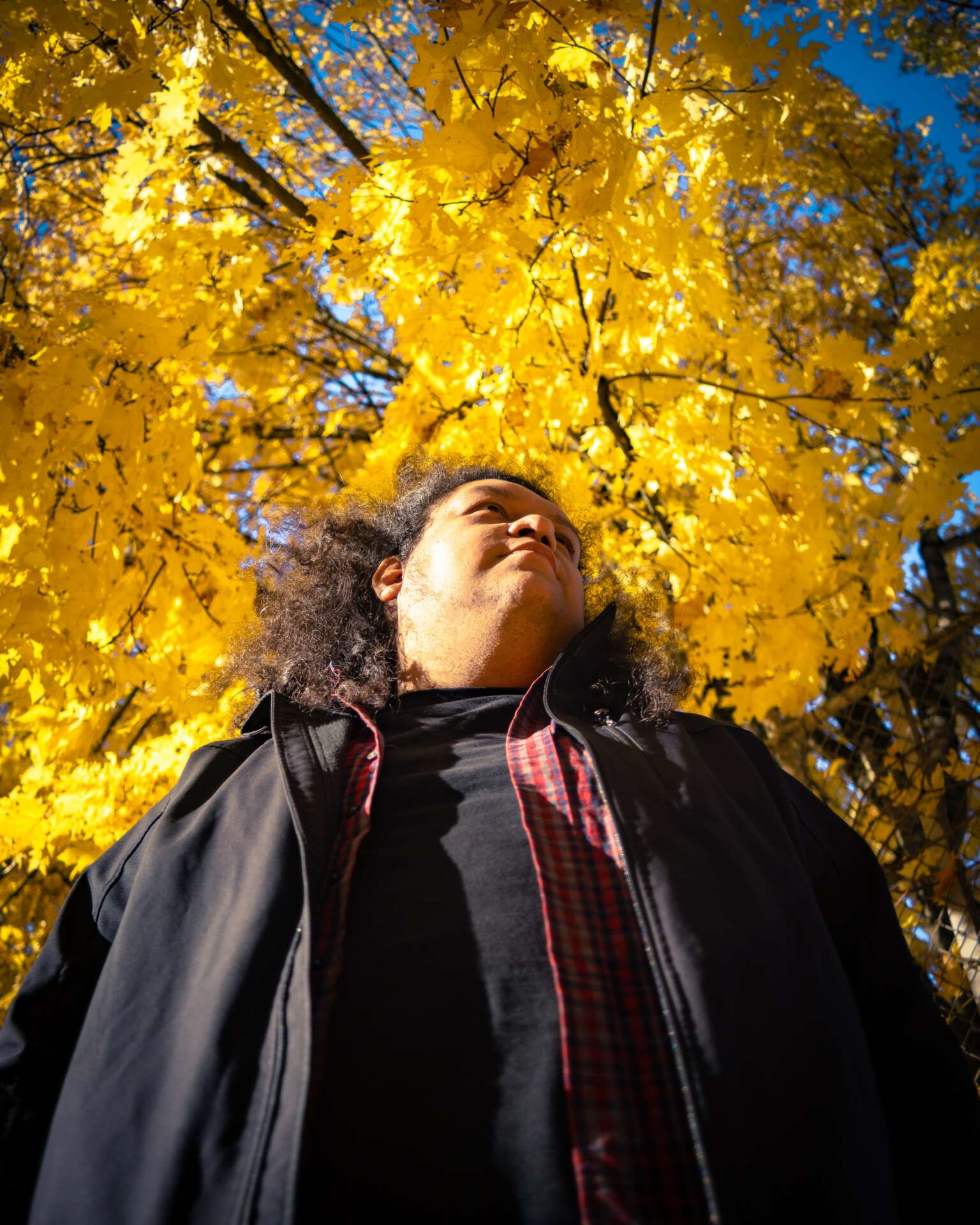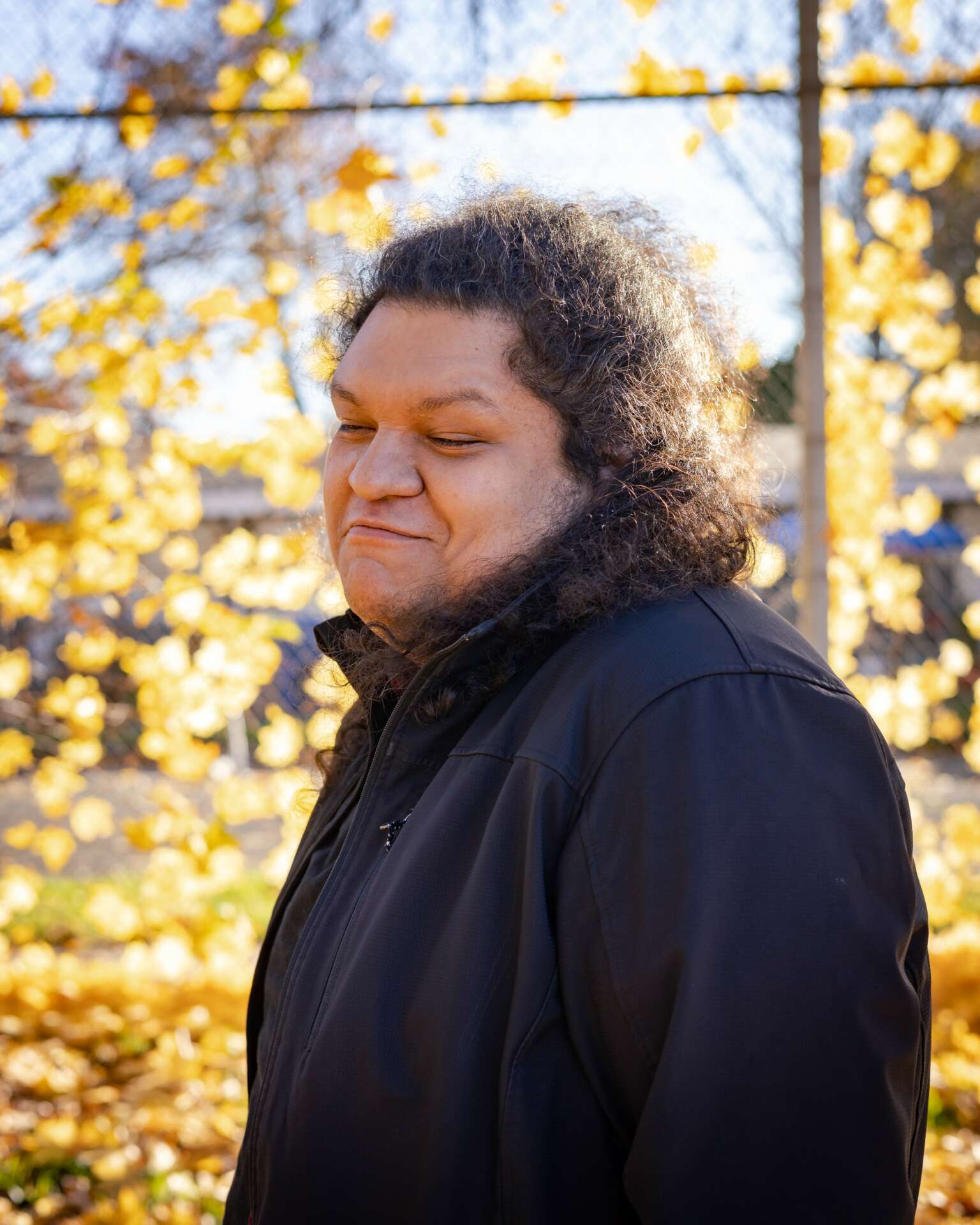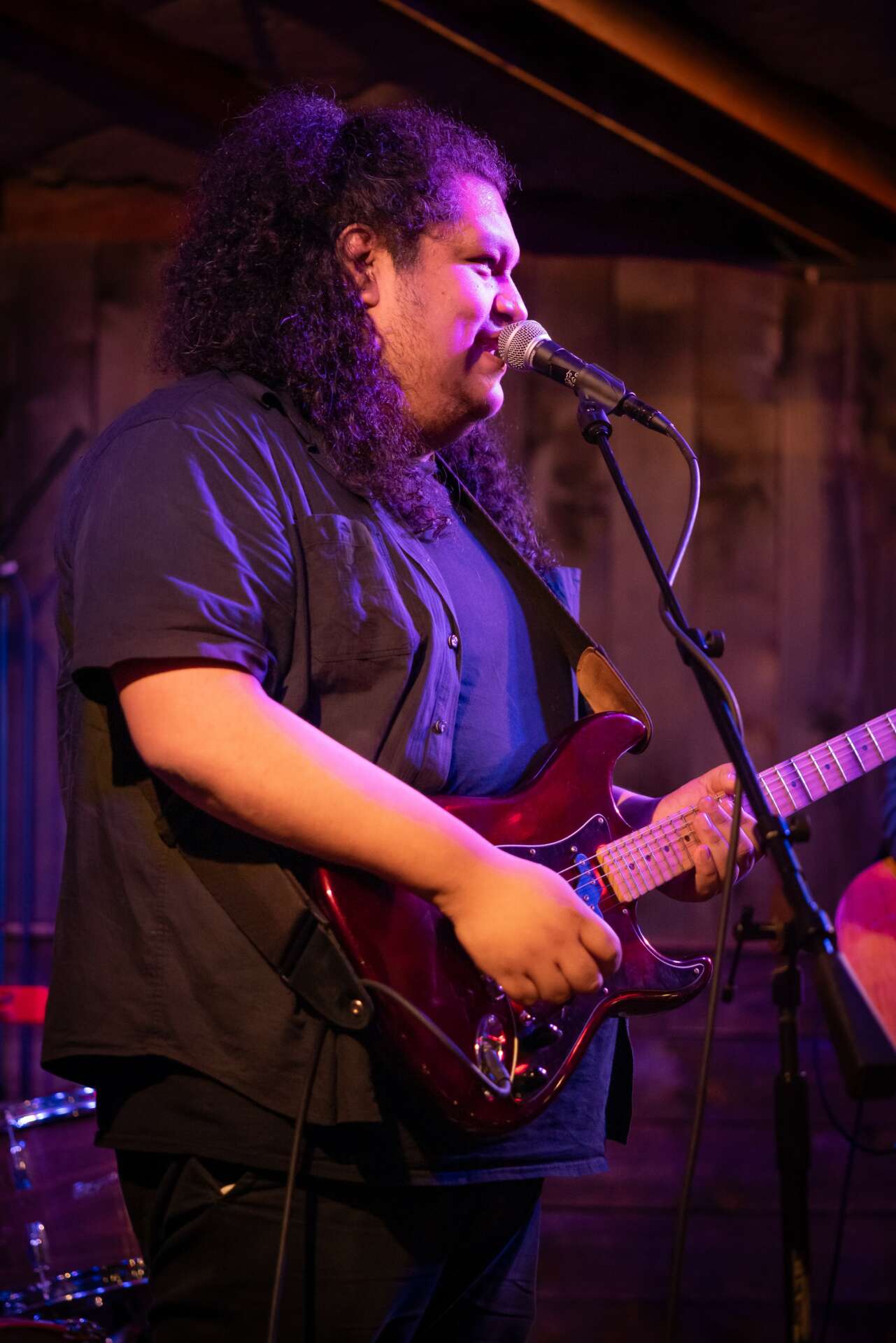We caught up with the brilliant and insightful Miguel Escobar a few weeks ago and have shared our conversation below.
Hi Miguel, thanks for joining us today. Learning the craft is often a unique journey from every creative – we’d love to hear about your journey and if knowing what you know now, you would have done anything differently to speed up the learning process.
In my experience, the technical skill required to begin writing music is minimal, but I constantly meet musicians who are trying to unlearn this myth (sometimes I think that the majority of our lives are spent processing and responding to the first few years of your life — some of which you may not even remember. It’s very annoying). I’m no different: I grew up singing in Church, and I took piano lessons for years but was only able to develop confidence in knowing that I’m terrible on the piano. Then, at the age of 15, I taught myself to play the guitar and it came much more naturally. I’m pretty damn good (not incredible) at singing and playing the guitar, but because I’m self-taught, and because the piano lessons didn’t go well, as a musician, I often feel like an imposter (this may be the most relatable feeling I can think of. Maybe the weirdest part of imposter syndrome is the continued expectation that a person will find confidence in success). The two classes I failed in undergrad (at least the two I remember failing) were piano and music theory. How embarrassing for a musician (though now I know that if success doesn’t or shouldn’t turn into confidence, failure shouldn’t turn into negative reaffirmation)! So I switched majors and studied Philosophy. Philosophy ended up being much more useful to me in my songwriting process (although I’m not sure I feel confident enough in my knowledge of that field either), especially since I enjoy finding the boundaries of the auditory side of music on my own (I think I play most things “by ear”). I’m not sure anything could have sped up this learning process because I think the process is necessarily slow (the assumption that learning something faster is somehow better is strange. Very much like the correlation between success and confidence). I think a person needs to learn to let go of the imagined markers of success, to let go of the idea that a person should learn something or accomplish something by a certain time or at a certain pace. Experience should inform us that the most savory flavors are in between, around, or directly across from those markers, and not the markers themselves (the central thesis is parenthetical).
(This intentional looking-away is a big part of my artistic process, though, of course, I haven’t perfected it. If two people stood on either side of you and each one tossed you a tennis ball, you would be more likely to catch both of them by staring straight ahead (but maybe it’s better to let them fall. Who knows). Many people who’ve lived much longer than I have told me the stories of their lives in a series of failures; a plan of attack, then the great absence of success, and finally the realization of something better. But for some reason they don’t tend to wrap the story up with advice about how to live parenthetically; to preemptively route a course in search of flavor, of so-called failure, anticipating savoriness in the absence of success. Maybe it’s all in the way you remember it). I guess it’s good to look straight ahead (because life is like two tennis balls being thrown at you from different directions). This is also good story-telling, good songwriting, good art. I want to tell you about butterflies because I want to tell you about Love in time. I want to tell you about myself so that we can talk about your self. I don’t need all of the artistic skill (although I still can’t believe I didn’t pass Music Theory: Fundamentals – a prerequisite to Music Theory 101), I just need to be able to do what I do, to be able to express my self; I don’t need to learn anything faster; learning is just flavorful. I’ll get “there” whenever I don’t get somewhere else. I’m very confident of it.


Miguel, love having you share your insights with us. Before we ask you more questions, maybe you can take a moment to introduce yourself to our readers who might have missed our earlier conversations?
I’m an artist! I would primarily consider myself a musician with both a solo career under my own name and a recently-revived rock and roll project called The Noble Manes (both streaming everywhere). For the last couple of years I’ve really been interested in conceptual music wherein the music and lyrics are playing with each other in an intricate way, beyond just conveying the same or competing emotions. For example, a couple of years ago I had an idea for a song that would begin with a simple arpeggio with a delay effect. I would program the delay to become increasingly unruly and add a new arpeggio in between verses, introducing a bit of dissonance with each new layer. The lyrics would tell a simple story of a family discovering that a tree can turn into fire and maybe even extend the story to their discovery of what can be produced with fire. The increasingly dissonant, stacked arpeggios would eventually become overbearing and somewhat unpleasant, and I would continue to tell the story with the same melody as before. The concept is meant to describe the climate crisis, our sad attempts to pretend it’s not happening, and the growing, underlying unease in which many in my generation have been raised. I have had trouble actually writing this song. Writing conceptually in general has been very challenging, and I’m really excited to get better at it. Butterflies, a single I recently put out under the name Miguel Escobar, is also a conceptual song, and I’m hoping to record and release more recent conceptual music in 2024.
I’m also working up the nerve to do stand-up comedy. I’ve been working up the nerve for a long time. I make a lot of jokes in between songs at live shows now, but that feels a bit different. I am, however, currently working on a comedy series with my long time art partner Gracia. In 2022, Gracia and I started a production company called Hyzteria House. We mostly make music videos for other artists, but we will be releasing our web series under Hyzteria House sometime in the first half of 2024! The show (currently untitled) is an exaggerated depiction of our own lives. We want to capture the struggles of what it’s like to be artists at this time in Seattle. This is maybe the goal of anything I make: I want to describe what my generation is dealing with in the US. I want to tell our story with as much nuance and humor as possible. I think humor and nuance make for an honest story, and I think if we were more honest, we would have softer hearts.

In your view, what can society to do to best support artists, creatives and a thriving creative ecosystem?
I only really have two suggestions and I feel like I talk about them a lot: 1) Support local art; 2) Expect more from artists.
A forewarning: I may sound pretty preachy and maybe a bit mean here. The first suggestion is fairly straight-forward. It pains me sometimes to hear folks talk about how much they love music, presenting as evidence the fact that they’ll spend $150+ for a ticket a few times a year to see a national or international giant perform at a stadium, but they have no clue who is playing down the street for $12. We need your support! Most well-attended local music shows that I go to are populated by local musicians. That’s not a bad thing, but I think a really thriving music scene needs other types of fans. People who have it in them to become passionate fans of music (or really anything) are some of the best people I’ve ever met! It seems to require a humble disposition. They seem genuinely open to being surprised. It’s incredible, and if you’re someone like that, we need your support on a local level. Not just financially – we need you to help shape us and the creative scene. The few encounters I’ve had with folks who were open to what I have to say, who experienced something when I played because they allowed themselves to – those few, brief interactions continue to inspire me. I can only imagine and dream about a local scene full of those types of people. I know other musicians who dream of this as well, who’ve had similar inspiring interactions. For many of us, those moments keep us dreaming. Dreaming is crucial for art-making.
My second point is fairly straight-forward as well: art might be the most powerful thing in the world. I think it’s surprising, especially given that we are immersed in it at all times, that we’re all not better people. Although, most music I hear is about romantic love or loss (usually just the loss of romantic love), so maybe this just encourages us to be more self-involved. So many lyrics are over-generalized so that the significance of the authors themselves is bypassed. “I watched you walk away and now you’re so far away and I want to be with you”. These are the thoughts of anyone, not someone. I’m not trying to be a bully, but who can say they wrote those lyrics when we’ve heard them a thousand times? It is a very lovely idea that a society would be so accepting of anyone who makes anything; it is good to honor creativity. Making stuff takes courage and encouragement is helpful. It is also okay, or even beautiful, even respectful, to expect that an artist has more to give. If you’re an artist, try really really hard! Dig deep. You are the reason your art matters. Make what only you can make. The more you that you are, the more genuine it is; the more genuine, the more powerful; the more powerful, the more transformative. It’s so corny – I believe art can change the world. During the lockdown portion of the pandemic, artists saved lives. We had a captive audience. We made people laugh, cry, think; we helped people discover their own emotions, we gave people hope, and hopefully encouraged some folks to ask new questions. We’re a powerful bunch! We need to take that power seriously. Help us. Expect great art.

What’s the most rewarding aspect of being a creative in your experience?
I can’t imagine being anything else. The reward of being an artist is probably tied to my natural inclination. My mom tells a story about going on walks with me as a child. She says that I would stop constantly to observe the flowers or stare at a tree or play with a leaf or something along those lines (thanks for all your patience, Mom and Dad). Apart from the time I spend making stuff, I spend my time becoming an artist. Even I’m not sure what that means. But I know that when I was first a student, my mind would wonder and the wondering was silenced by answers. When I was first someone else’s employee, my mind would wander and I would have to chase it, subdue it, force it to stick to the task at hand. Now that I am first an artist, I wander wherever and wonder whatever I want. It’s very important business to stop and stare at a tree, to observe the flowers, play with a leaf, and then to report what I have witnessed, having been filled with something that must be expressed. They call what I do “playing”. I feel very lucky to play for people. It is a tremendous honor to bear all this witness.

Contact Info:
- Website: hyzteriahouse.com
- Instagram: Miguel Escobar Music
- Facebook: Miguel Escobar
- Youtube: Miguel Escobar
Image Credits
Dylan Randolph & Gracia The Artist


